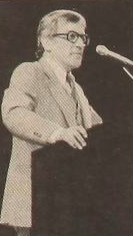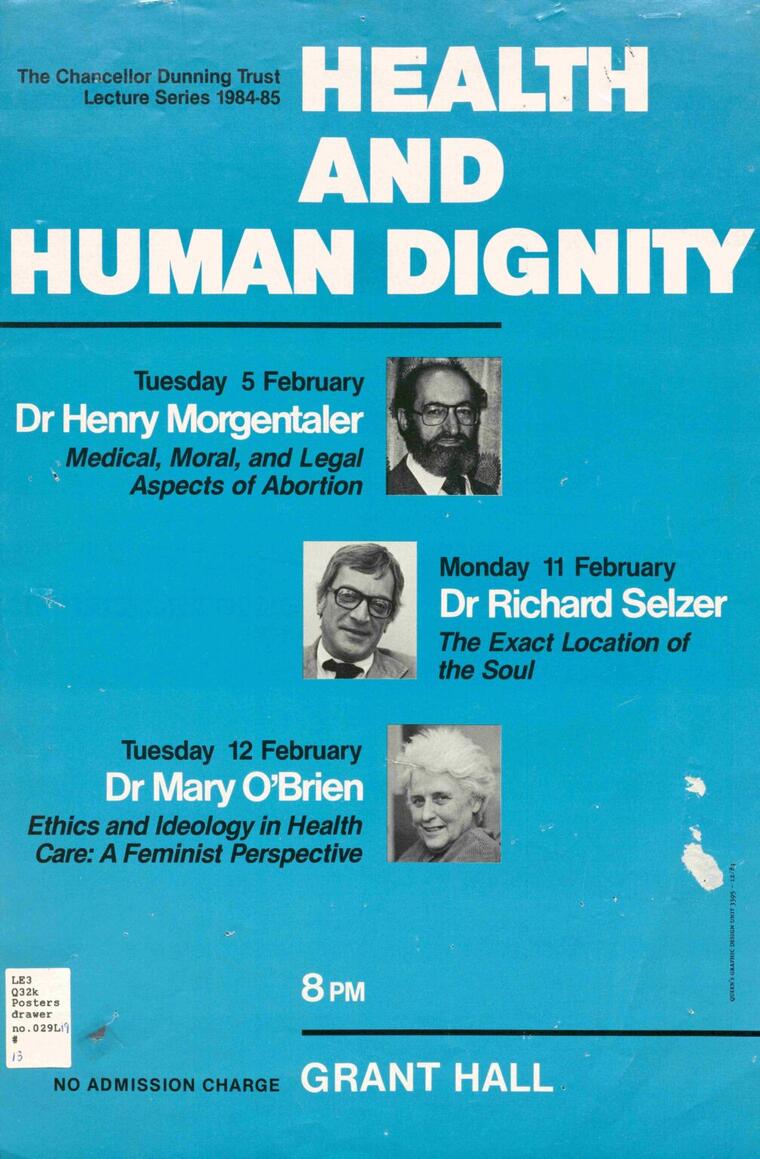
Richard Selzer was a surgeon-turned-writer. He was a professor of surgery at Yale University, an award-winning essayist, and the author of four books including Mortal Lessons, a book of essays on the art of surgery. In 1960, following a surgical internship and residency at Yale University, he joined the faculty, where he remained until his retirement in 1985. He published numerous books of essays, short stories, and memoirs, including works of fiction that address the field of medicine and questions of medical ethics. Selzer received numerous awards and honours, including the Columbia School of Journalism National Magazine Award, the American Medical Writer’s Association Book Award, a Guggenheim Foundation Fellowship, and 13 honorary degrees. He died in 2016.
Selzer’s lecture was a part of a series on “Health and Human Dignity.” In his talk, Selzer brought together his work as a surgeon and as a writer. He discussed the similarities he saw between the short stories he wrote and his surgical operations: beginning with an incision, followed by some rummaging, and ending with a stitch-up. As a surgeon, he wrote to “domesticate his terror,” “to give pain a name”, and to express the awe he feels for the human body. From here, Selzer considered how the languages of love and grief have been developed in literature for centuries, and recounted his own attempts to retrieve a language of pain through his writing. The exact location of the soul, he continued, was at the interface between mind and body, where the mind loses itself in wonder at the body, such as the feeling of looking at a newborn baby. Selzer spent the remainder of his talk reciting a short story about the life cycle of a guinea worm in the desert and in his host body, and arguing that there was no more compelling drama than the life of a parasite. In writing and in surgery, he ended, he wished to follow Emily Dickinson’s extort to “tell all the truth but tell it slant.”
Selzer’s lecture was held on February 11, 1985. Twenty years later, an author in the Kingston Whig-Standard wrote that “although [Selzer] didn’t tell us except in metaphors where we might find the soul, his enthusiasm for the search was contagious. Since that lecture, I have for almost 20 years taken up the hunt for this most elusive entity.”
Listen to his lecture below.
